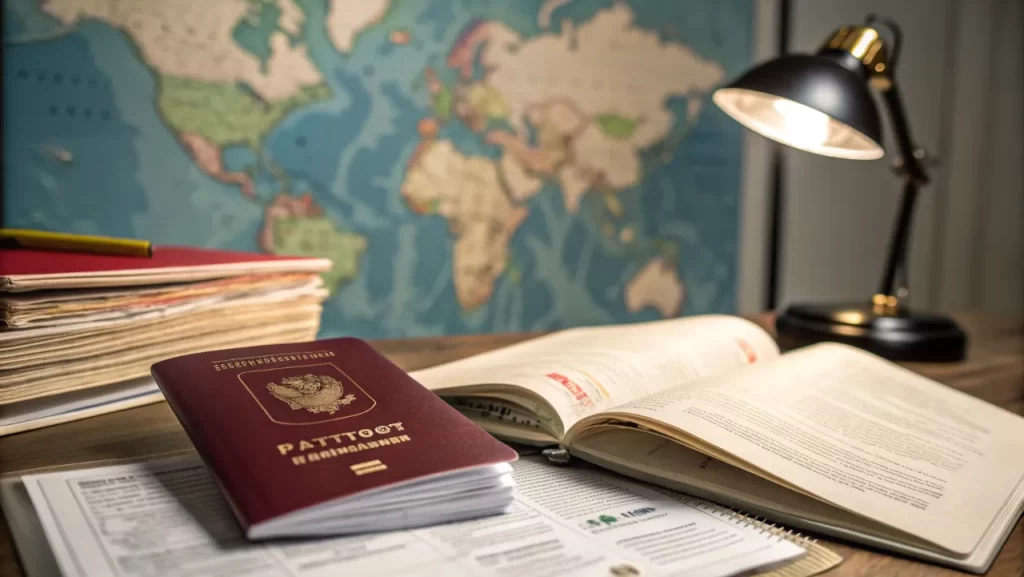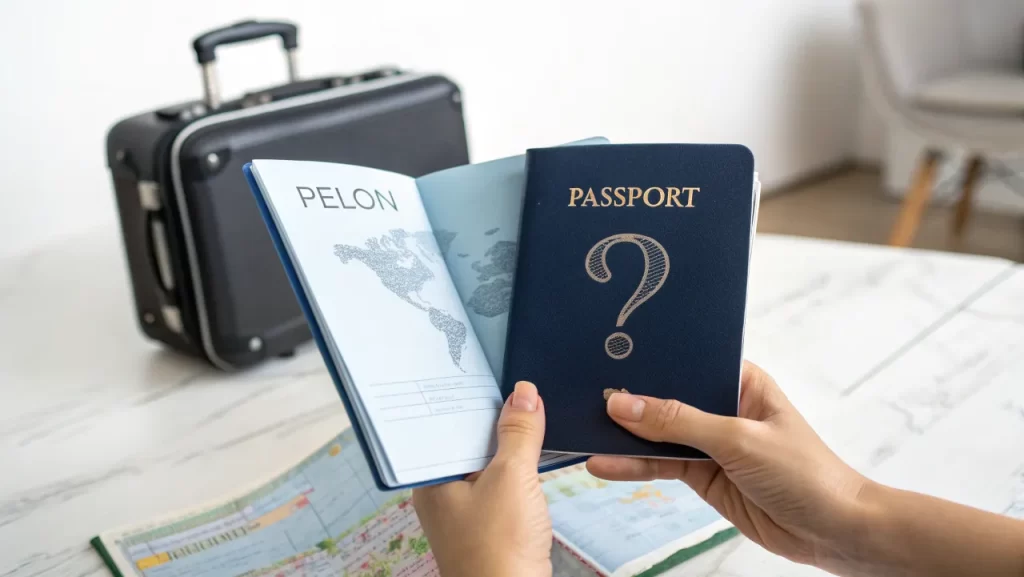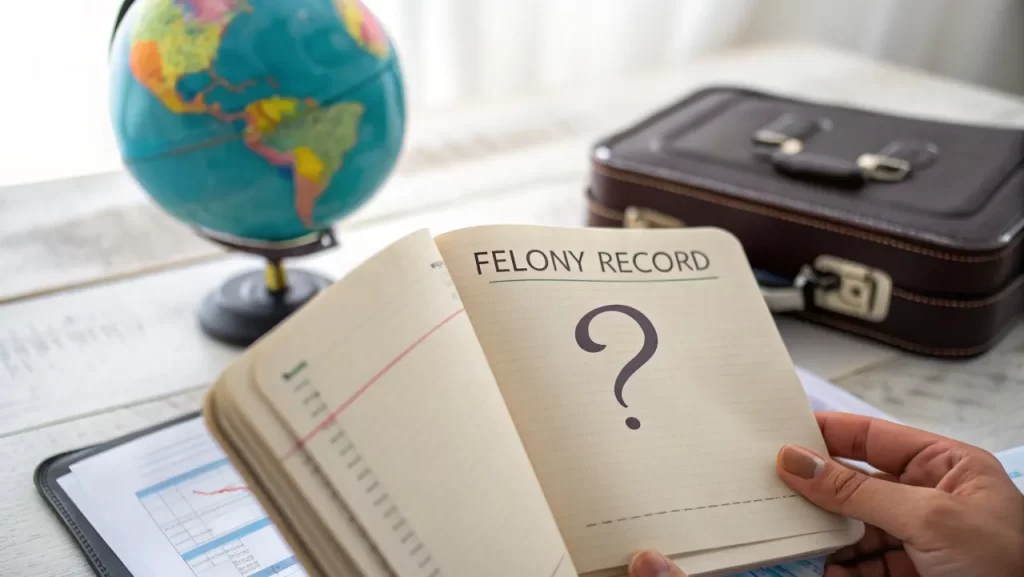Table of Contents
Traveling abroad can be an exciting and enriching experience. However, for those with a felony conviction, the question of whether they can get a passport can raise concerns. While the rules may seem unclear at first, understanding the specific regulations can help ease the confusion.
Can a felon get a passport? The answer is generally yes, but certain factors can affect eligibility. In this article, we will dive into the details of how felony charges can impact passport acquisition and what travelers need to know.
Who Can and Cannot Get a Passport?
Can a felon get a passport? Most individuals, regardless of a past felony conviction, can obtain a U.S. passport as long as they meet certain criteria. According to USA Today, having a felony conviction does not automatically disqualify a person from getting a passport.
In fact, the majority of felons can apply without facing significant issues. However, there are some important exceptions that could prevent an individual from obtaining a passport.
A person who is currently awaiting trial, on probation, or on parole may face restrictions on traveling abroad. In these situations, it is likely that the person will not be granted a passport until their legal matters are resolved.
Additionally, there are some felony convictions that can prevent passport issuance, including certain drug trafficking charges and treason convictions.
Impact of Felony Charges on Passport Acquisition

Can a felon get a passport? Felony convictions can potentially complicate the passport application process. However, the main factors that influence whether a felon can get a passport are not directly related to the conviction itself but to the restrictions imposed by the court or other authorities.
For instance, if a felon is under a court order that restricts international travel, such as being on probation or parole, this could prevent them from getting a passport. Similarly, individuals who owe more than $2,500 in child support or have defaulted on certain government loans may be denied a passport due to these financial obligations.
In some cases, felony convictions that involve trafficking drugs across international borders can also lead to passport restrictions. These laws are specifically designed to prevent individuals involved in illegal cross-border activities from using a passport to escape prosecution or evade law enforcement.
Also Read: Why 158.63.258.200 Is an Invalid IP Address Explained
Can a Felon Travel with a Passport?
Can a felon get a passport? Even though a felon may be able to obtain a passport, this does not guarantee they will be able to travel freely. While most countries allow short-term visits for passport holders, travelers with a felony conviction may face challenges when trying to enter certain nations.
Countries such as Canada and Australia may impose additional travel restrictions on individuals with felony convictions, particularly for offenses like DUI (driving under the influence).
These nations often require additional documentation or a visa for travelers with criminal backgrounds, which can complicate the process—whether you’re flying internationally or even taking transit near the Fern Rock Transportation Center BSL.
It’s important for individuals with felony convictions to research the specific entry requirements of their destination country before making travel plans.
The Role of Visas in International Travel

Can a felon get a passport? A U.S. passport is generally sufficient for short-term stays in most countries, but for longer visits, certain countries require a visa.
The visa application process typically involves a criminal background check, which could prevent a person with a felony conviction from being approved for a visa. This means that while a felon may successfully obtain a passport, they may still face barriers when applying for entry to certain foreign countries.
For example, if a felon plans to visit the European Union or any other region with strict visa requirements, their felony conviction could make the process more difficult.
It’s crucial for individuals with criminal records to understand that having a valid passport does not guarantee entry into every country.
Also Read: What is True About Spillage:Its Implications in Various Contexts
Restrictions on Specific Crimes
Not all felonies are treated equally when it comes to obtaining a passport. While most felony convictions will not prevent someone from getting a passport, there are specific crimes that can lead to restrictions.
For example, individuals convicted of crimes involving national security, such as treason or espionage, may be permanently banned from receiving a passport. Similarly, individuals with felony convictions related to trafficking illegal substances across borders may face international travel restrictions.
Another key factor is unpaid child support. If a person owes more than $2,500 in child support, the U.S. government can deny their passport application or even revoke an existing passport. The purpose of this rule is to ensure that individuals fulfill their financial obligations, particularly toward their children.
Travel Considerations and Criminal Background Checks

Can a felon get a passport?, While a U.S. passport allows entry back into the United States, it does not automatically guarantee entry into a foreign country. For longer stays or work-related travel, many countries require a visa, which may involve additional background checks. If a person has a felony conviction, this could influence whether they are granted a visa or allowed entry into that country.
Some countries have stricter policies regarding individuals with criminal records, particularly felonies related to violence or drug trafficking. It is essential for travelers to be aware of the entry requirements of their destination and take steps to secure any necessary documentation in advance.
How to Handle Travel Restrictions as a Felon
For individuals with a felony conviction who wish to travel abroad, it is advisable to take proactive steps to ensure a smooth process. First, individuals should consult with an attorney to discuss their specific situation and understand whether any travel restrictions apply to them. An attorney can help navigate the complexities of international travel and advise on the best course of action.
Additionally, it is essential to check with the consulate or embassy of the destination country for any additional requirements or restrictions related to criminal history. Some countries may require a waiver or special visa for individuals with criminal backgrounds, while others may impose complete bans on entry.
Final Thoughts
Can a felon get a passport? Yes, most felons can obtain a passport, as long as they are not facing legal restrictions like probation, parole, or outstanding financial obligations.
However, even with a valid passport, there may be travel limitations depending on the felony charge and the policies of the destination country. It’s always wise for individuals with felony convictions to thoroughly research entry requirements and consult with legal experts to ensure their travel plans go smoothly.
In conclusion, while a felony conviction may not prevent a person from obtaining a passport, it can impact their ability to travel freely. For felons planning international trips, it’s important to stay informed about both U.S.
passport policies and the entry requirements of the countries they wish to visit. With careful planning and legal guidance, traveling abroad is still possible for many felons.
FAQs
Can a felon get a passport?
Yes, most felons can get a passport unless restricted by probation, parole, or certain convictions like drug trafficking or unpaid child support.
What crimes prevent a felon from getting a passport?
Felony convictions like drug trafficking across borders, treason, or owing over $2,500 in child support can prevent passport approval.
Can a felon travel internationally with a passport?
While a passport allows re-entry to the U.S., some countries may deny entry based on criminal history or require additional documentation like a visa

